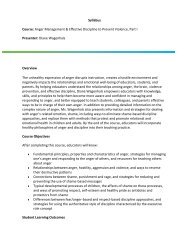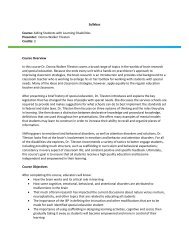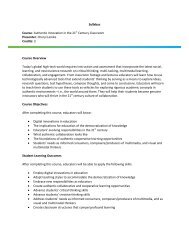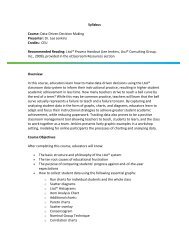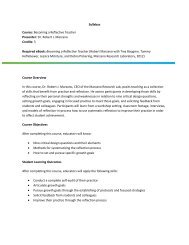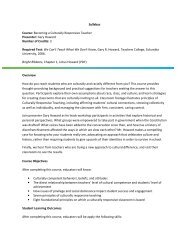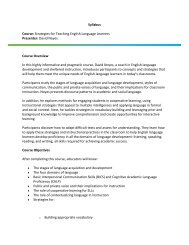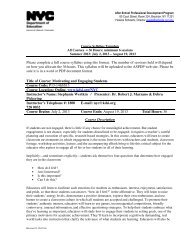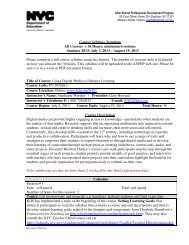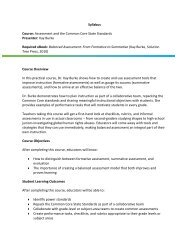COURSE SYLLABUS
COURSE SYLLABUS
COURSE SYLLABUS
You also want an ePaper? Increase the reach of your titles
YUMPU automatically turns print PDFs into web optimized ePapers that Google loves.
Unit 3: Predetermination (video)Video Lecture.Unit 4: The Framework of Modern School Culture (eBook)Here, Dr. Muhammad looks at the mandate of No Child Left Behind, and the shift ushered in by the publicaccountability movement - from a focus on teacher intentions to a focus on evidence of student learning.He examines the unique human experiences that influence how school culture forms and how well aschool operates: perceptual, intrinsic, and institutional predetermination. Educators share personalexperiences that illustrate the potential effects of predetermination.ObjectivesAfter completing this unit, educators will know:The role of teacher accountability as it is envisioned in a healthy school environmentThe role of perceptual predetermination, i.e., the impact of an educator’s socialization on practicein the classroomThe role of intrinsic predetermination, i.e., the messages students internalize from home,community, and school about the probability of their school successThe role of institutional predetermination, i.e., the “system of sorting” that identifies students’proficiency and tracks them accordinglyLearning OutcomesAfter completing this unit, educators will apply the following skills:Analyze the role of perceptual, intrinsic, and institutional predetermination in their own schools ordistrictsUnit 5: Encouraging Believers (video)Video Lecture.Unit 6: The Believers (ebook)In Unit 5 and its companion eBook chapter, Dr. Muhammad explores the first of four groups of teachersidentified through the interviews and observations collected from public schools across the country: theBelievers. Believers are the teachers administrators would clone if they could; they believe passionatelyin the goal of success for every student, and go to great lengths to achieve this goal. Dr. Muhammaddescribes what Believers bring to the culture of a school, and cites a need for Believers to become moreactive and aware in challenging day-to-day assaults on the belief system that frames their practice.Administrator interviews provide real-world examples of the Believers’ role in a healthy school culture.110 William Street, Suite 2201, New York, NY 10038 | www.kdsi.org | P: 1.800.728.0032 | SYLTSCCEUST



